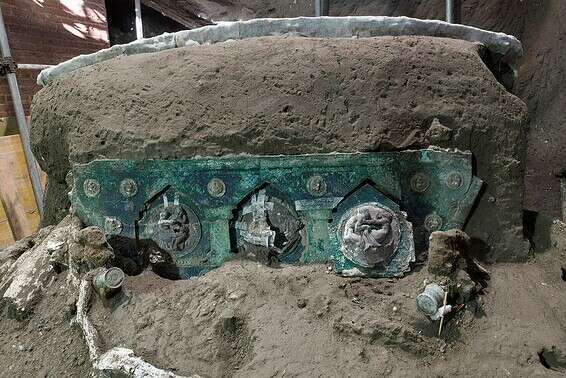
An entire ceremonial chariot was recently found near Pompeii, the ancient Roman city that was destroyed in the eruption of the volcano Vesuvius in 79 AD, it was reported yesterday (Saturday) from the archeological park that operates the site.
According to park officials, this is one of several important discoveries recently made in the area outside the walls of the Old City, which is near present-day Naples. “This is an extraordinary discovery that presents a unique discovery that has not been seen before in antiquities throughout Italy, and it has been preserved in excellent condition,” it was reported.

The chariot, on which elements of iron, bronze ornaments and mineralized wooden remains were found, was found in a porch of horse stables in the ruins of a settlement north of Pompeii, where the remains of three horses were discovered. . It is estimated that the chariot survived the eruption of the volcano because the building in which it was staying collapsed – and modern pirates were unable to reach it.
The first signs of the chariot’s existence were found on January 7. Park officials also said it was located in the grounds of one of the oldest villas in the Vesuvius area.
